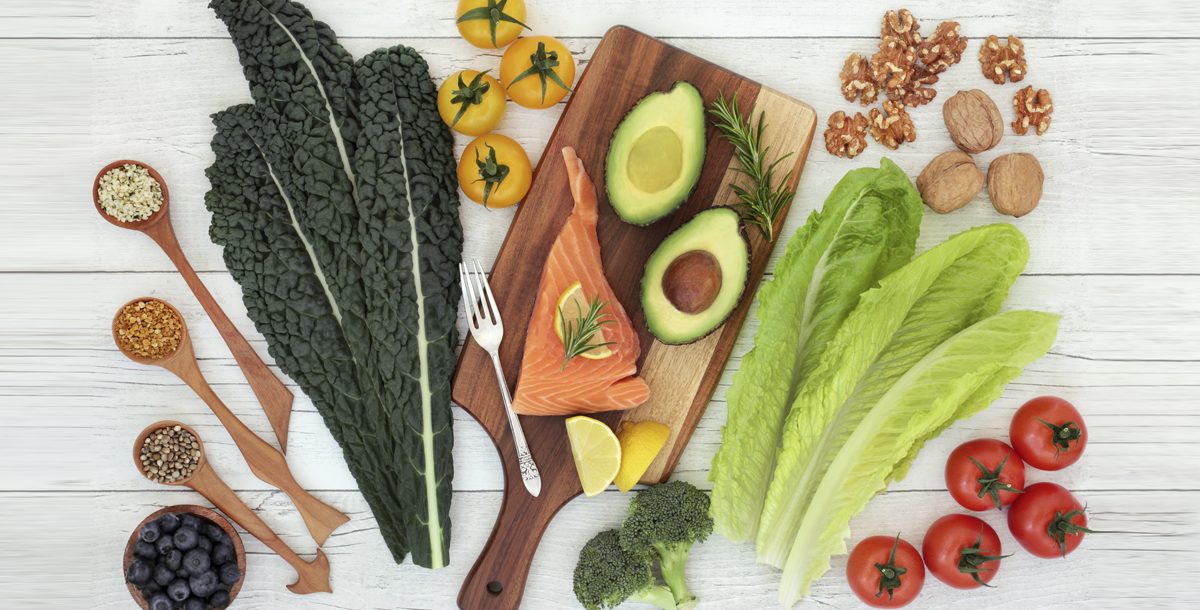We all want healthy brains – and it’s a no-brainer (pun intended) that we should cater our diets to foster brain health. But what are the best and worst foods for brain health?
As you look to improve your brain health, there many foods and good habits that you can incorporate into your diet that are brain-boosting. Similarly, there are plenty of foods that you can remove to protect your brain.
The best foods for your brain
Promoting a healthy brain involves incorporating a variety of fresh vegetables, fruits, whole grains and legumes into your diet. Among these food groups, specific ingredients can help you boost your brain health.
Be on the lookout for foods that include brain-healthy nutrients, including:
- Vitamin B
- Vitamin K
- Vitamin E
- Coenzyme Q10
- Lutein
- Folate
- Beta carotene
- Omega-3
What foods help improve memory?
Specifically, you can improve cognitive well-being and improve memory by including the following into your daily nutrition:
- Berries: Research suggests that, in addition to being a deliciously sweet treat, berries have a favorable effect on brain health, potentially preventing memory loss. However, the benefits of flavonoids extend beyond just sweetness; they also exhibit the capacity to enhance memory. So, feel free to incorporate an abundance of berries into your next smoothie, salad or dessert, harnessing their memory-boosting potential.
- Leafy greens: Consuming green, leafy vegetables can enhance brain function and decrease the cognitive decline associated with aging. Incorporating plant-based options or at least one serving of greens into your diet can contribute to mental clarity and promote long-term brain health.
- Fatty fish and other healthy fats: These fats are crucial for the well-being of both your heart and your brain. When assessing the fat content in food, it’s best to find “unsaturated fats,” which include monounsaturated and polyunsaturated fats. These healthy fats offer numerous advantages, including sustaining long-term energy for the brain. If you don’t enjoy fish, consider incorporating walnuts, avocados or supplements into your diet to ensure you receive beneficial sources of omega-3 fatty acids.
- Soy products: Soybeans are a source of polyphenols, which are antioxidants that hold the potential to reduce the risk of dementia development. Incorporate a greater variety of soy products into your diet to help maintain cognitive sharpness as you age.
- Nuts and Chocolate: Nuts, especially walnuts, and seeds serve as valuable sources of antioxidant vitamin E, an ingredient associated with reduced cognitive decline as we grow older. Dark chocolate, in addition to being tasty, is a great brain food in that it possesses potent antioxidant properties. It also contains natural stimulants like caffeine, which can bolster concentration and focus. You can reap these benefits by indulging in up to an ounce of nuts and dark chocolate daily, all without exceeding your caloric, fat or sugar intake.
The worst foods for your brain
Beyond incorporating nutritious foods into your diet, consider minimizing these unhealthy foods on your grocery list:
- Processed foods: One straightforward method to gauge the level of processing in your food is by considering the shelf life. Does the item spoil rapidly, or does it have a remarkably long shelf life? Grocery store shelves are stocked with a plethora of processed foods, including candy, chips and canned food items. This category also includes “fast food” options which can be tempting choices if you’re on the go. However, these products tend to add empty calories to your diet, providing minimal nutritional value. Overconsumption of processed foods can result in weight gain and potential damage to brain tissue. For optimal brain health, prioritize foods that have a limited shelf life rather than those that seem to last indefinitely.
- Sugary drinks: Similar to processed foods, these beverages can contribute to excessive weight gain without delivering essential nutrients, so it’s best to steer clear. An overabundance of sugar can lead to impaired memory, compromised brain function and hindered learning abilities. Moreover, it has been associated with an increased risk of Alzheimer’s disease and dementia.
- Alcohol: This won’t come as a shock to most, but consuming too much beer, mixed drinks or wine can negatively impact memory function. Alcohol also disrupts sleep patterns, and inadequate sleep can result in various problems that include mood swings and difficulties in decision-making and concentration.
Overall, what can I do to focus more on boosting my brain health?
Here are some action items you can take to improve the health of your brain:
- Keep your kitchen stocked with whole foods and fresh ingredients. This will help you avoid the temptation to reach for those convenient yet unhealthy options.
- Exercise regularly. Physical activity can help you think, learn, problem-solve and enjoy an emotional balance. It can also improve memory, provide a reduced risk of anxiety or depression as well as reduce your risk of cognitive decline, including dementia. Exercise also has many other physical health benefits.
- If you’re experiencing memory loss or symptoms that are affecting the quality of your daily life, like headaches or loss of vision, you should make an appointment your primary care provider. They can then work with you to identify the cause of your symptoms and work on finding a treatment or specialist that works best for you.
Learn more about the neurology services and nutrition services we provide at Bon Secours.





